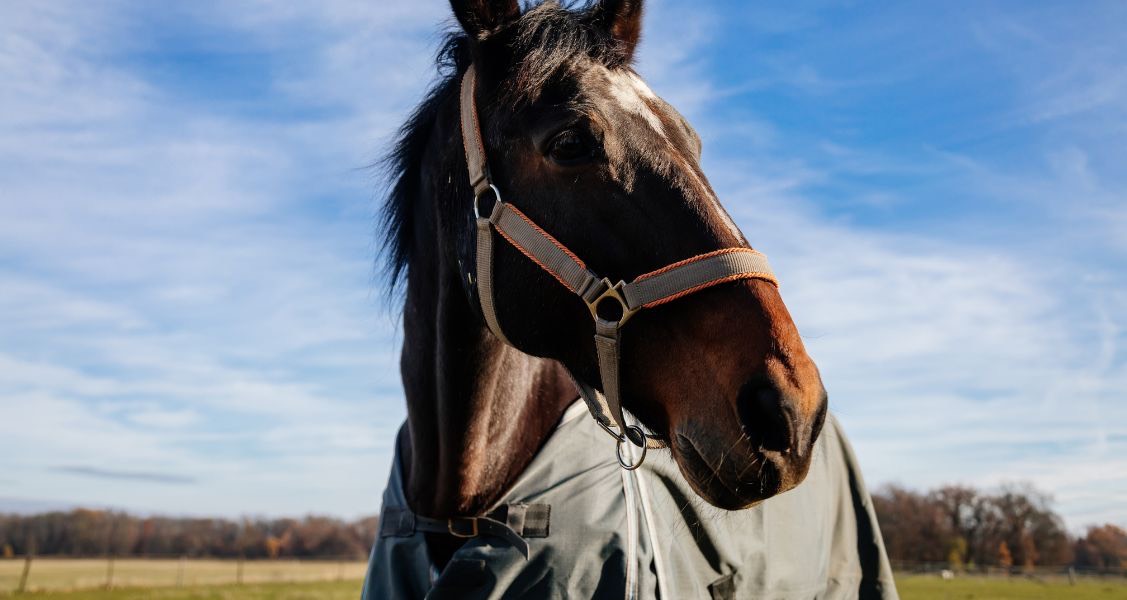Ways To Protect Your Horse’s Coat From Damage
Oct 28, 2023

As a caring horse owner, you want your equine companion to be in peak condition, including having a lustrous, healthy coat. A horse’s coat indicates their overall health and is an essential barrier against the elements and potential sources of injury; keeping it in good condition is important. Read on to learn a few ways to protect your horse’s coat from damage and maintain its health and shine.
Daily Grooming Routines
Establishing a regular grooming routine is one of the most important tasks in maintaining your horse’s coat health. Daily grooming allows you to remove dust, dirt, sweat, and shedding hair from your horse’s coat that could lead to skin irritation and an unkempt appearance.
Use a quality curry comb or grooming mitt to loosen dirt and debris, then follow up with a stiff-bristled brush to remove the remaining grime. Check for any signs of skin injuries, itching, or hair loss that may indicate a more serious problem requiring prompt attention.
Balanced Nutrition and Hydration
As with every other aspect of their health, your horse’s diet significantly influences their coat. Ensure a glossy, healthy coat by providing your horse with a balanced diet of essential vitamins, minerals, and omega-3 fatty acids. High-quality hay or pasture should be the foundation of your horse’s diet, but depending on their nutritional requirements, you may need to supplement it with additional grains or concentrated feed.
Consult your veterinarian or equine nutritionist to develop a feeding plan tailored to your horse’s needs. Adequate hydration is also critical for skin health; your horse needs access to clean, fresh water at all times.
Beware of Sun Damage
Much like people, horses are susceptible to the damaging effects of sunlight’s ultraviolet (UV) rays. Long-term sun exposure causes the coat to fade, leaving it looking dull and bleached. Over time, excessive sun exposure may increase the risk of skin cancer in horses.
Protect your horse’s coat from damage by limiting their time in direct sunlight, especially during strong UV radiation in the summer. When possible, provide your horse with shade in the form of trees or a sunshade in their field or paddock when barns or stables aren’t available. Consider applying equine sunscreen designed specifically for horses to those with white markings or pink skin for added protection.
Consider Using Horse Blankets
Horse blankets protect your horse’s coat during colder months or inclement weather conditions. They act as a buffer to insulate your horse’s body against sudden changes in ambient temperature and resist moisture, protecting your horse’s coat from damage and keeping them comfortable.
Choose a blanket specifically designed for your horse’s size and breed, and consider factors such as breathability, waterproofing, and the level of insulation required based on your local climate. Personalizing your horse blanket is an excellent way to ensure it has the features necessary to protect your horse from the hazards of your region.
Maintaining and protecting your horse’s coat is a matter of aesthetics and an important aspect of your equine friend’s overall health and well-being. Following the precautions and steps outlined in this article ensures your horse’s coat is beautiful and protects against the elements and potential injuries. Make your horse’s coat shine and keep them safe from the natural elements as they roam and graze.


Disclaimer: healthcareforpets.com and its team of veterinarians and clinicians do not endorse any products, services, or recommended advice. All advice presented by our veterinarians, clinicians, tools, resources, etc is not meant to replace a regular physical exam and consultation with your primary veterinarian or other clinicians. We always encourage you to seek medical advice from your regular veterinarian.

